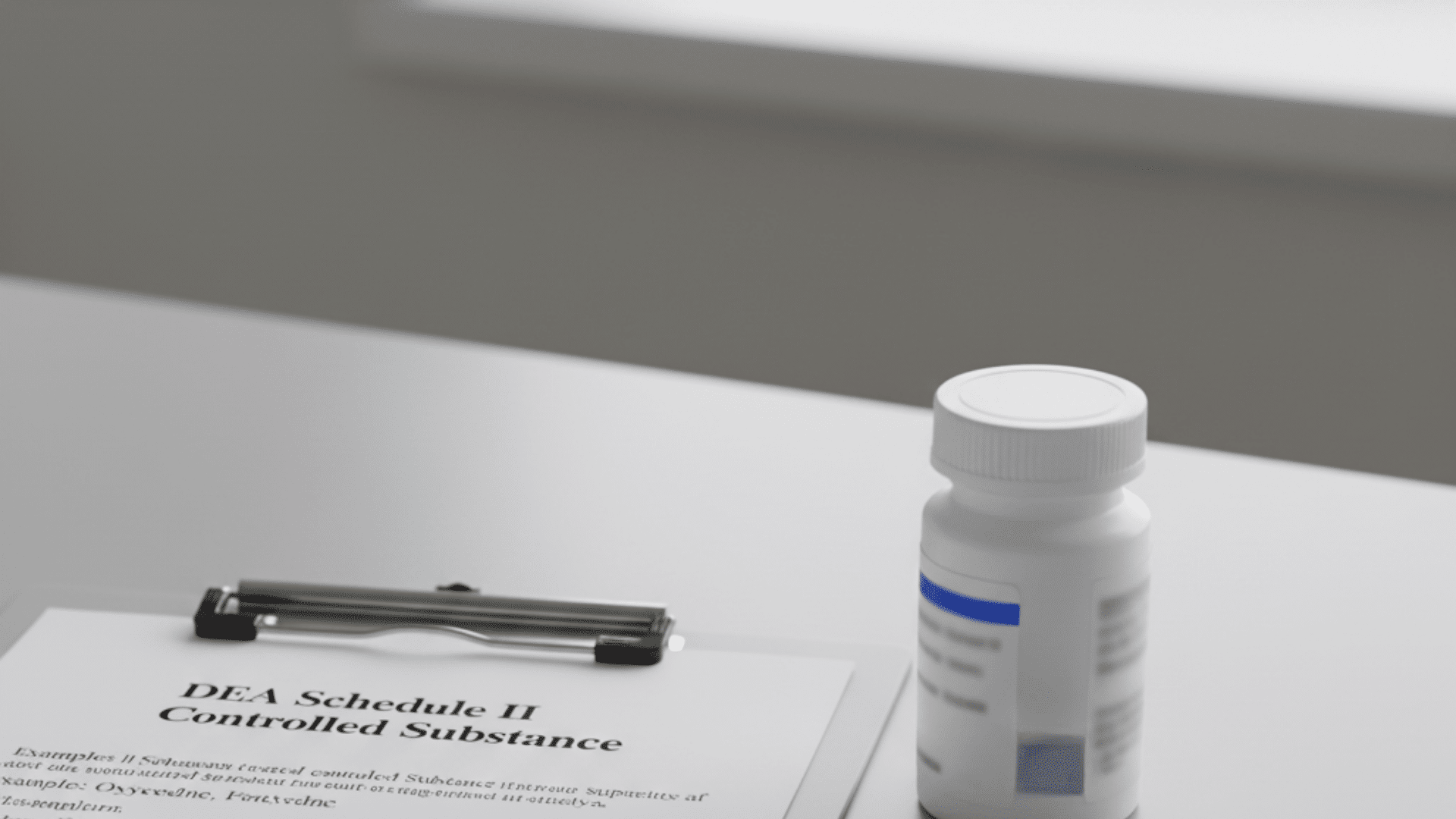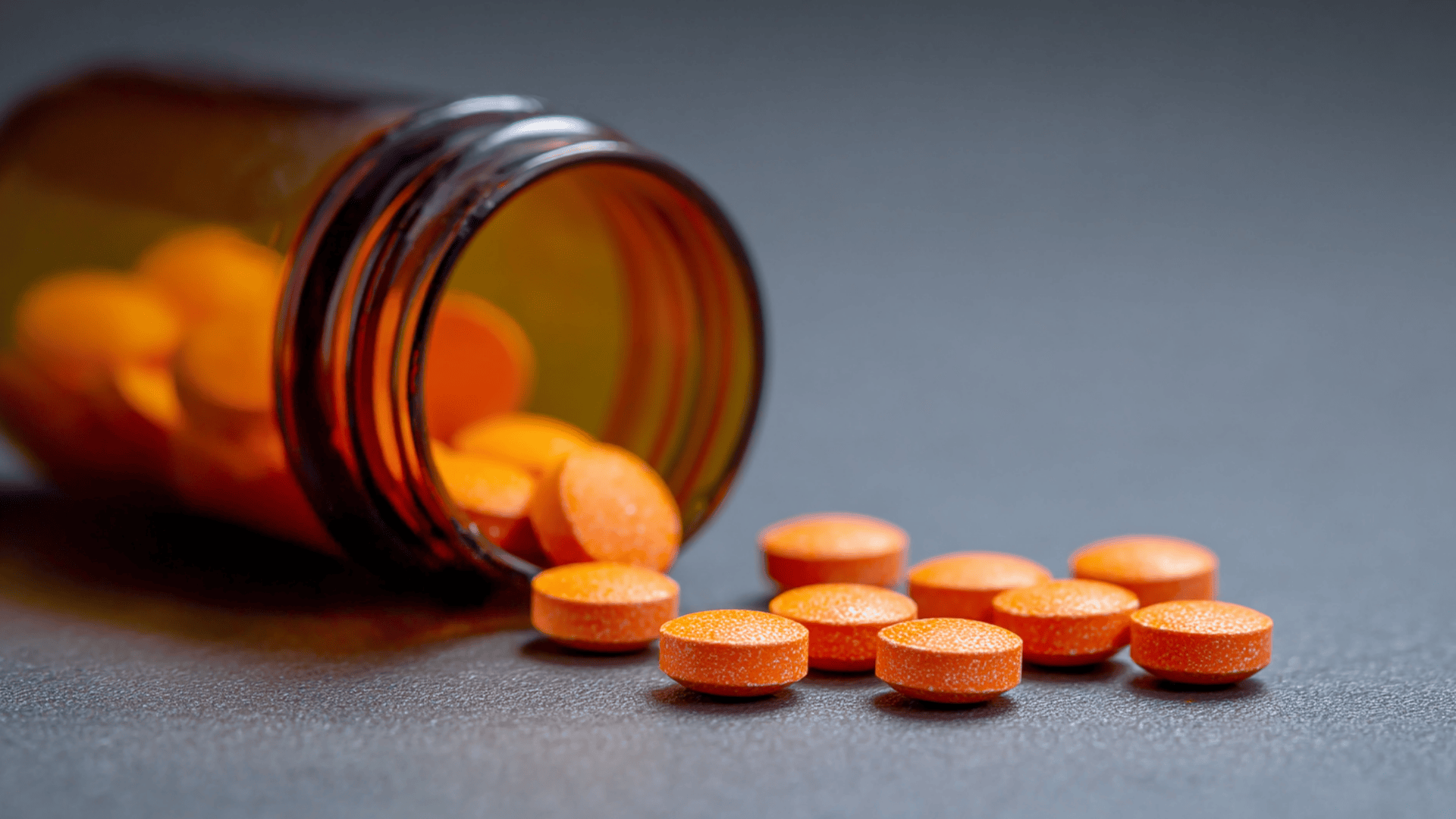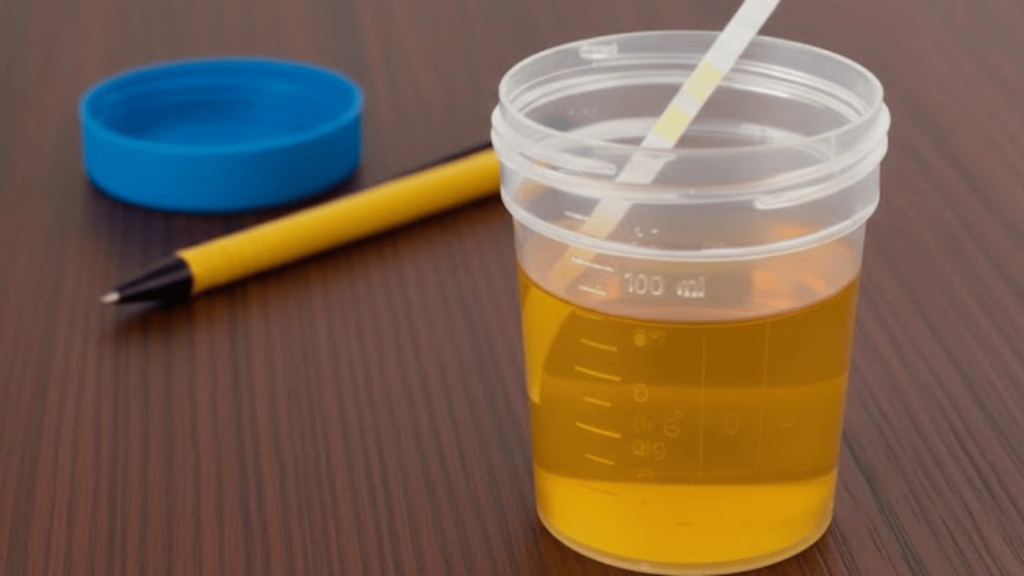A lot of people assume Adderall is a narcotic because it’s tightly regulated and can be addictive.
I’ve heard the same question many times, especially from those prescribed it for ADHD or students worried about drug tests.
The truth is, while Adderall isn’t a narcotic, it’s still classified as a controlled substance. That means it carries serious legal and health responsibilities.
In this post, I’ll walk you through why it’s often mistaken for a narcotic and what its classification actually means. By the end, you’ll understand why Adderall requires caution.
This article is for informational and educational purposes only and does not promote or encourage the use, misuse, or sharing of prescription medications.
What is Adderall and How Does It Work?
Adderall is a prescription medication that combines two stimulants: amphetamine and dextroamphetamine. These ingredients work together to affect brain chemicals like dopamine and norepinephrine, which help control attention and alertness.
Doctors typically prescribe Adderall to treat attention-deficit hyperactivity disorder (ADHD) and narcolepsy, a sleep disorder that causes sudden daytime sleepiness.
By increasing dopamine and norepinephrine levels, Adderall helps people stay focused, alert, and better able to manage impulses.
When used correctly and under medical supervision, Adderall can make a real difference for those who struggle with focus and energy control.
But outside prescribed use, it can cause dependence and serious side effects, one reason it’s so tightly monitored.
What is a Narcotic?
The term “narcotic” originally referred to drugs that dull pain and cause sleep, mostly opioid-based medications. These include morphine, oxycodone, codeine, and even illegal drugs like heroin.
Narcotics work by binding to the brain’s opioid receptors, blocking pain signals, and creating feelings of calm or euphoria.
Unlike stimulants, which increase alertness and energy, narcotics slow the body down. They’re mainly used for pain management in medical settings, but can easily lead to physical dependence and addiction.
So, while both narcotics and Adderall are powerful and controlled, they affect the brain in opposite ways.
Narcotics sedate; Adderall stimulates. That’s the key distinction behind their classifications.
Is Adderall a Narcotic?
Adderall may be addictive, but it isn’t a narcotic. Chemically, Adderall belongs to a completely different class known as stimulants.
Instead of dulling pain or producing sedation, Adderall increases brain activity, helping people with ADHD focus and stay alert.
TheDrug Enforcement Administration (DEA) lists Adderall as a Schedule II controlled substance, the same category as some narcotics like oxycodone.
This means it has a recognized medical use but a high potential for abuse. However, that doesn’t make it a narcotic.
A “controlled substance” is any drug regulated by the government due to potential misuse. A “narcotic,” on the other hand, is specifically an opioid painkiller. Adderall is tightly regulated, but it’s not opioid-based.
Many people also wonder, “Is Adderall a controlled substance?” Yes, it’s classified by the DEA as a Schedule II medication. That means it has accepted medical use but a high potential for abuse, requiring careful prescription control.
Why the Confusion Exists for Adderall
People often use the word “narcotic” loosely to describe any drug that’s controlled or addictive. That’s where the confusion starts.
Adderall and opioids both fall under Schedule II in the DEA’s classification, meaning they require strict prescription monitoring and can’t be refilled automatically.
Pharmacies sometimes label all Schedule II drugs under the same umbrella of “narcotic control,” even though medically, they’re very different.
Add to that how both can cause dependence and withdrawal, and it’s easy to see why the mix-up happens.
As I see it, the word “narcotic” has become a catch-all term for “dangerous or addictive,” which oversimplifies how drugs actually work. Understanding the science and classification clears that up.
Legal Classification and DEA Schedule II

In the United States, the Controlled Substances Act organizes drugs into schedules based on their medical use and abuse risk. Schedule II includes substances with legitimate medical purposes but high abuse potential.
For Adderall users, this means:
- Possession without a prescription is illegal.
- Doctors can’t authorize refills; a new prescription is required each time.
- Sharing medication is treated as drug distribution, a serious offense.
Penalties for misuse can include heavy fines, probation, or jail time. The classification isn’t meant to punish legitimate users but to prevent misuse and illegal sales.
Many people don’t realize how strict these rules are until they face refill delays or pharmacy checks. Schedule II regulation helps ensure the medication stays where it’s needed, under a doctor’s supervision.
Adderall’s Risks and Addiction Potential
Even though Adderall isn’t a narcotic, it’s still addictive. The drug increases dopamine, the same “reward” chemical linked to pleasure, which can make users crave that focused, energetic feeling.
Over time, some people may start taking more than prescribed, chasing that effect. Common signs of misuse include:
- Taking higher doses than prescribed.
- Using it without a prescription.
- Relying on it for energy or productivity.
- Feeling anxious, irritable, or restless when skipping doses.
Long-term abuse can lead to high blood pressure, heart issues, anxiety, and insomnia. It can also cause severe withdrawal symptoms, such as fatigue, depression, and loss of concentration.
The risks line up with findings from the peer-reviewed article “Adderall and cardiovascular risk: A therapeutic dilemma” (Sichilima & Rieder, 2009), which reports that mixed amphetamine salts like Adderall are associated with sustained increases in heart rate and blood pressure during both short- and long-term treatment, raising concern about cardiovascular harm with prolonged use.
The line between medical use and dependency can blur quickly. That’s why ongoing check-ins with a healthcare provider are essential for anyone prescribed Adderall.
Adderall vs. Narcotics: Key Differences
| Feature | Adderall | Narcotics |
|---|---|---|
| Drug Type | Stimulant | Opioid |
| Brain Effect | Boosts dopamine/norepinephrine | Blocks pain signals |
| Legal Class | Schedule II | Schedule II (some) |
| Addiction Risk | Psychological + Physical | Physical + Psychological |
| Medical Use | ADHD, Narcolepsy | Pain Relief |
While both drugs can cause dependence, they do so through entirely different mechanisms. Both require prescriptions and close monitoring, but their purpose and chemistry are unrelated.
How Adderall Appears on Drug Tests?

Adderall shows up on most standard drug tests because it’s an amphetamine-based medication.
Tests can detect it in urine for up to 3–4 days, and sometimes longer with frequent use.
Employers or legal authorities may request disclosure if you’re prescribed Adderall. Being upfront with your prescription helps avoid misunderstandings or false assumptions about illegal stimulant use.
If you have a valid prescription, you can safely explain that Adderall was doctor-approved and used as directed. Honesty is key in both employment and legal settings.
Safe Use and Medical Supervision of Adderall
Adderall should only be taken under a doctor’s guidance. Prescribers often adjust doses based on your response and side effects.
Never change your dosage or frequency without approval; even small changes can alter how your body reacts.
Follow-up appointments allow your doctor to monitor blood pressure, sleep patterns, and potential side effects. Sharing Adderall with friends or family, even if they have similar symptoms, is illegal and risky.
Safe use comes down to trust and consistency between you and your doctor. That’s how you keep treatment effective and safe.
What to Do If You’re Dependent on Adderall
If you feel like you can’t function without Adderall, that’s a sign of dependence. The first step is talking to your doctor. Don’t try to stop suddenly, as that can cause withdrawal symptoms.
Treatment options include:
- Medical tapering to reduce dosage safely.
- Behavioral therapy to rebuild healthy focus habits.
- Support programs or hotlines specializing in stimulant addiction.
Detoxing or tapering should always be medically supervised. I’ve seen people recover successfully once they admit the problem and get help.
If you or someone you know struggles with Adderall dependence, reaching out for support can make all the difference.
Wrapping Up
Adderall isn’t a narcotic, but that doesn’t make it harmless.
It’s a controlled stimulant designed for specific medical conditions and carries serious legal and health responsibilities.
The confusion often comes from its Schedule II status and addictive potential, but scientifically, it’s very different from opioids.
If you ever feel unsure about your use or dependence, talk to your doctor. Understanding how Adderall works and using it responsibly helps protect your health and your future.
For more informative blogs like this, check out the website!
Frequently Asked Questions
How long does Adderall stay in your system?
Adderall can remain detectable in urine for 1–4 days after use, depending on dose, metabolism, and frequency. Hair and blood tests may show it for longer periods.
What are the common side effects of Adderall?
Typical side effects include increased heart rate, trouble sleeping, reduced appetite, dry mouth, restlessness, and anxiety. They usually lessen when taken as directed under medical supervision.
Can doctors prescribe Adderall for weight loss or other off-label uses?
While Adderall may suppress appetite, it isn’t approved for weight loss or non-medical use. Off-label use carries higher risks and should only occur under a doctor’s supervision.






